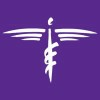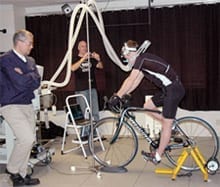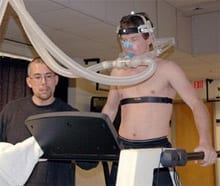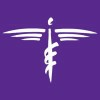One man is improving
the human condition
while testing human
endurance and highlighting
world issues
Swim, bike, run. Triathlons are easy
to understand.
But magnify the concept to 10,225 miles
and stretch the route across 13 countries
in 11 months and it becomes The World
Triathlon, a nearly unfathomable concept
that’s just under way.
Charlie Wittmack, a Des Moines attorney, the
first Iowan to climb Mount Everest and a life-
long adventurer, embarked on this epic
journey July 1 when he jumped into the
River Thames to swim to the North Sea and
across the English Channel. He’ll
follow that with a 9,000-mile bike
ride across mountains and deserts
in Europe, Asia and Nepal. Next he’ll hop
off the bike to run a 950-mile trail from sea
level at the Bay of Bengal through
the Himalayas to the summit of Mount Everest.
The whole trek is roughly 100 times the length of an Ironman triathlon.
Wittmack is not making this crazy-ambitious journey on a whim or to show off superhuman endurance. He’s doing it to bring light to issues he considers very serious. Health. The environment. Education. That’s where Des Moines University fits in.
Yogesh Shah, M.D., associate dean of global health at DMU, created a partnership among The World Tri team, DMU, the World Health Organization and the White Ribbon Alliance (WRA) to promote a message of public health and education to combat maternal mortality. The WRA is an international coalition working to make childbirth safe for all women.
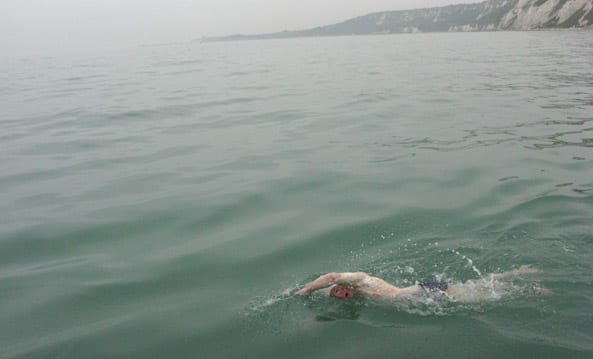
That fits Wittmack’s world view. “I stopped thinking about the parts of the trips as adventures and instead as opportunities to form connections,” he said in a May 17 talk with DMU students.
So while he recovers from biking and prepares to hike Everest, a DMU group will work with him and his wife, Cate Wittmack, on the maternal mortality challenge. The team includes DMU faculty, graduates, staff and students as well as physicians and health care students from around the United States.
Beginning in December, the team will train health care workers in the Kathmandu hospital on safe, clean delivery procedures, using birthing models from DMU’s Iowa Simulation Center for Patient Safety and Clinical Skills.
From January through June 2011, the team will visit rural villages along Wittmack’s hiking route to speak in schools and at community gatherings. They will share information on safe sex, pregnancy complications and maternal health issues, using materials prepared by UNICEF.
“Right now many in rural areas consult an untrained birth attendant for deliveries. They do not get even a local birth attendant involved until there are complications, at which point it’s often no longer an option to get the mother to a larger town with a medical facility,” Shah explains. “Part of the message we will share is why it’s important to get prenatal care and call the attendant at the start of labor.”
Members of the team will rotate through in month-long stints, but the message will remain constant: No woman should die while giving birth.
Is he ready for an extreme adventure?
Before embarking on more than 10,000 miles of extreme physical challenge, Charlie Wittmack needed to beef up his training. And before he began training, he needed to know his body’s strengths and weaknesses. He called on DMU Exercise Physiologist Joe Weir, Ph.D., and Professor Vassilios Vardaxis, Ph.D., who put him through the gauntlet.
“To get a baseline before Charlie really started seriously training, we looked at how efficiently his body processes oxygen, his electrical muscle activity and his energy expenditure on bike and on foot,” Weir explains. “This helped his coaches design his dietary regimen and focus his training.”
Working in the DMU Physical Therapy Clinic, Running and Cycling Clinic and Human Performance Lab, Weir, Vardaxis and Shane McClinton, D.P.T.’07, M.S.’01, performed a gait analysis and athletic assessment on Wittmack. They tested his resting energy expenditure, cardiovascular fitness and running and cycling efficiency.
The information helped Wittmack and his coaches and will be used for physiology and physical therapy research at DMU. While abroad, Wittmack’s team will try to get comparable data to add to the research.
Wittmack needs to work various muscles after his trek each day to ensure he is ready and able for the next step. He needs to consume massive amounts of calories to give his body strength. He’ll need to keep in mind issues, exercises and therapies discussed with McClinton, too, so he can head off recurring injuries and prevent overuse strains.
“Each leg of the trip is so long and so extreme, it has the capability to change him physically,” Weir notes. “We have to make sure he is physically able to perform each portion of the tri without doing damage to his body.”
Follow along with Charlie on his epic journey on his blog.
